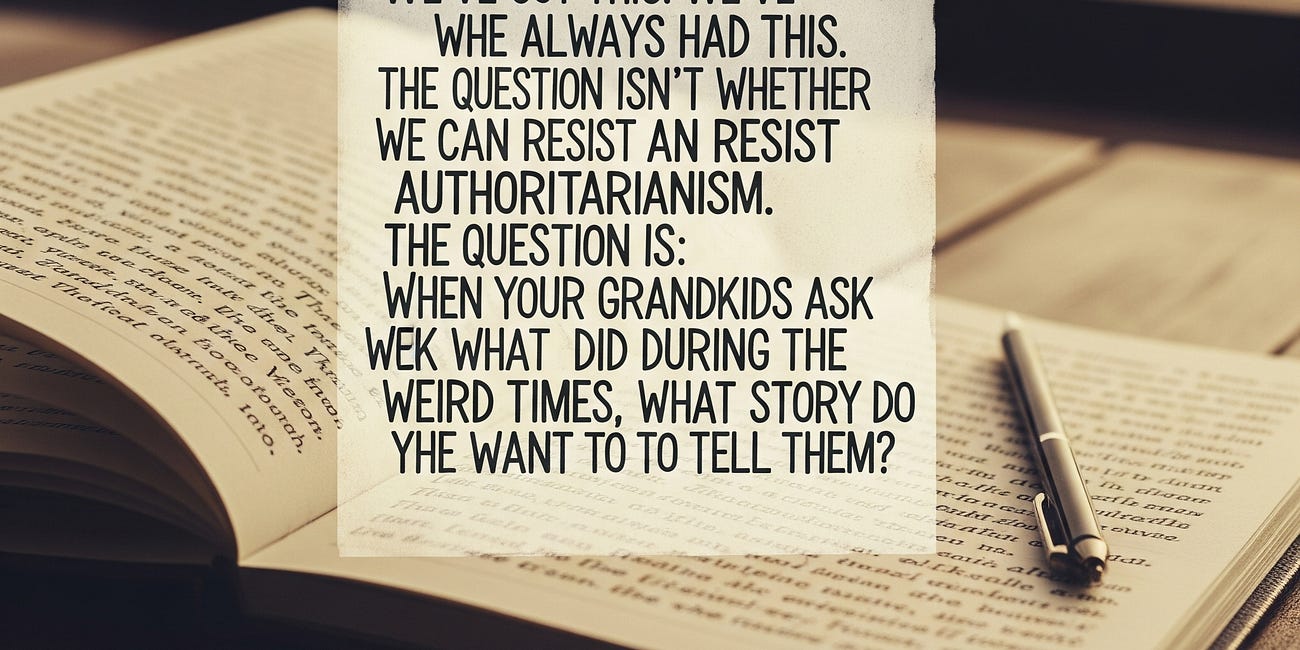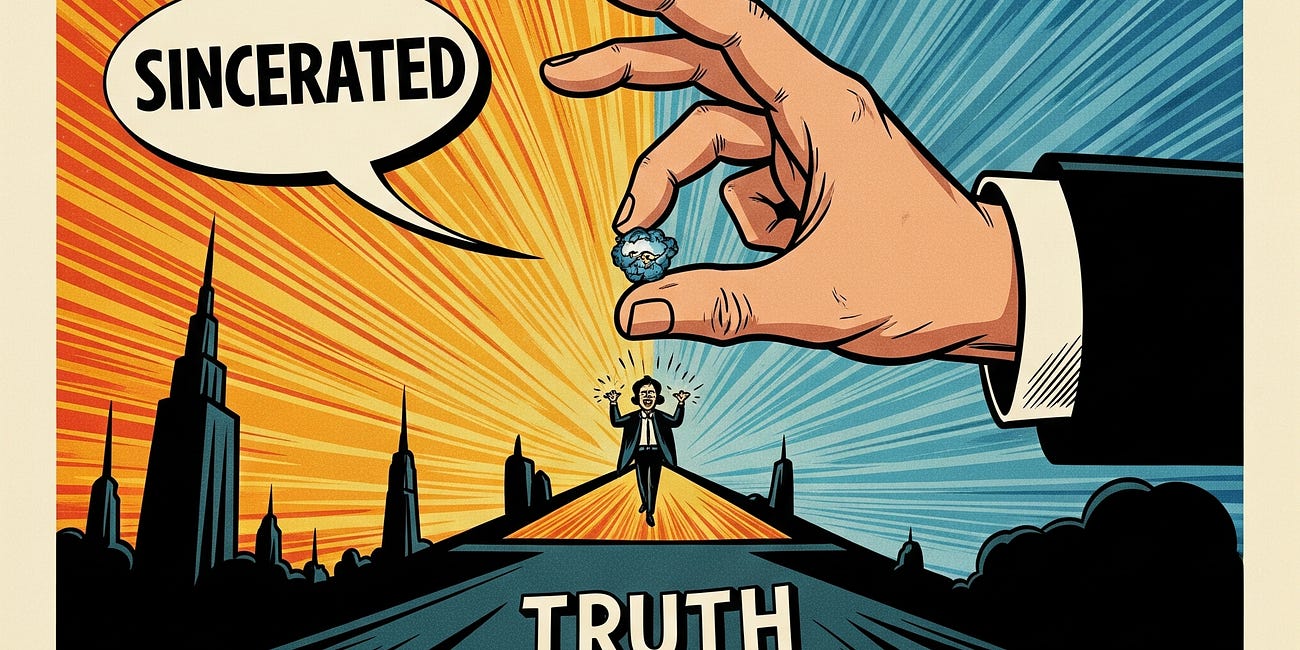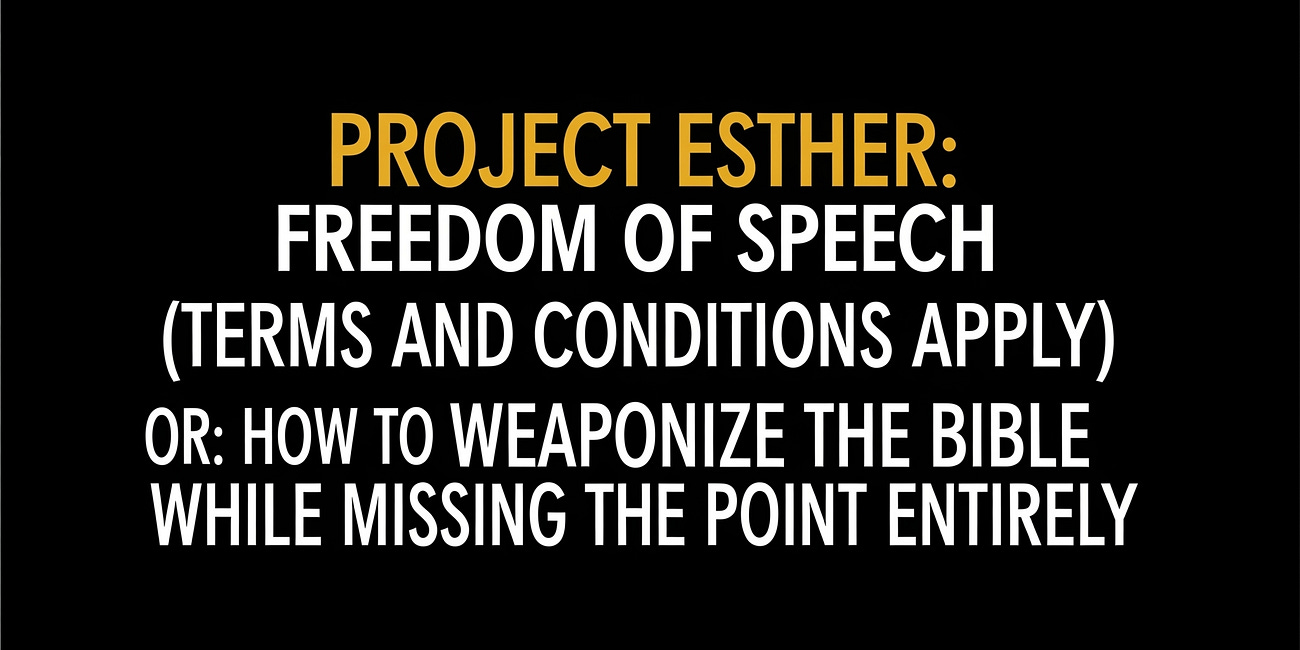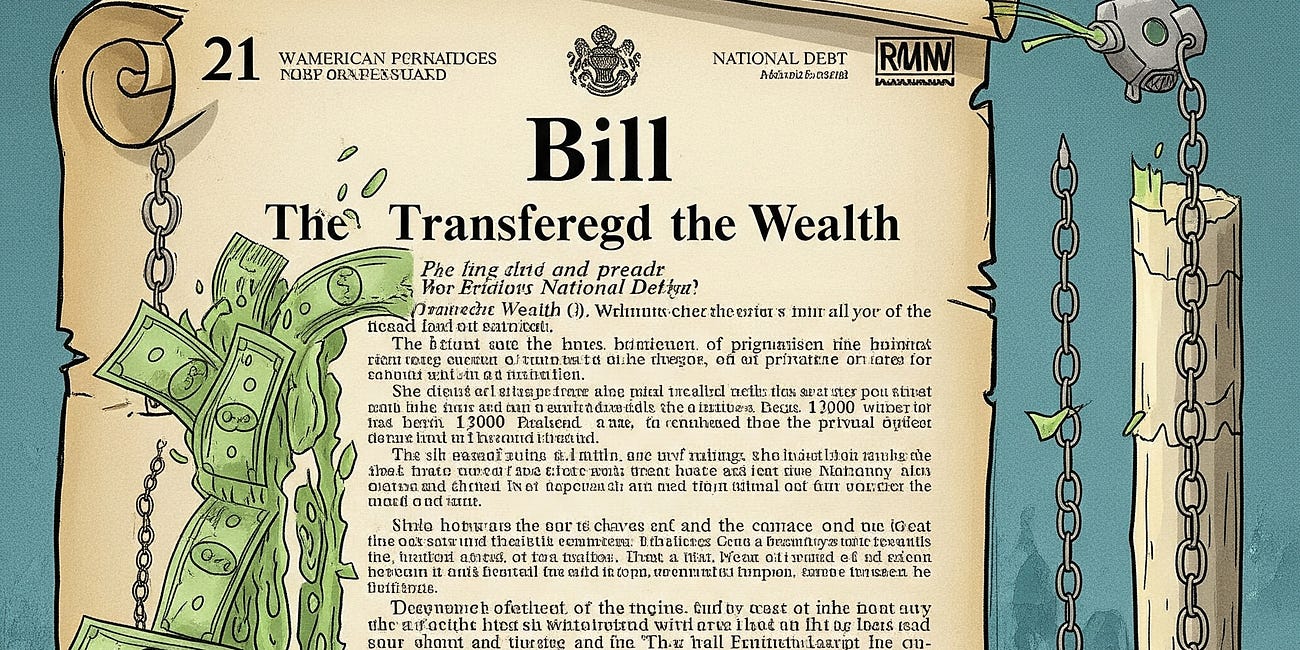The American Corruption Machine: A Beginner's Guide to Getting Fleeced
Stop Worrying and Love Being Robbed by Rich People
Remember when your biggest worry was whether politicians were lying about their campaign promises?
Those were adorable times. Turns out, while we were arguing about whether they'd actually fix potholes, they were busy selling the entire highway system to their golf buddies.
Welcome to America 2025, where corruption isn't a bug—it's the operating system.
Chapter 1: The Great Watchdog Massacre of 2025
Let's start with a fun fact: America just fired 17 Inspectors General in one day. You know, those pesky people whose literal job is to catch corruption and waste.
Think of it like this: imagine you're running a casino, and your biggest problem is all these annoying security guards who keep catching dealers cheating. Solution? Fire all the security guards! What could go wrong?
Here's the kicker—federal law says you need to give Congress 30 days notice and explain why you're firing these watchdogs. Our new administration's response? "Nah, we're good."
It's like speed-running corruption. Any% category, no glitches needed.
The Victims: Defense, State, Housing, Veterans Affairs, Energy, Transportation, Agriculture, Interior, EPA, Health and Human Services, and foreign aid. You know, just the tiny agencies that handle our military, health, environment, and food supply. No biggie.
Chapter 2: The "Totally Not Bribery" Bribery System
Remember when we pretended politicians couldn't be bought? Well, good news—we don't have to pretend anymore!
The new administration helpfully eliminated all those pesky "ethics pledges" that prevented appointees from taking gifts from lobbyists. Because nothing says "drain the swamp" like making it legal to feed the alligators.
But wait, there's more! Want dinner with the President? That'll be $5 million, please. Candlelight dinner with a smaller group? Bargain price of $1 million.
It's like Uber, but for democracy. Surge pricing during constitutional crises.
Chapter 3: The Musk Empire Strikes Back
Elon Musk presents the most beautiful conflict of interest in modern American history. Through something called DOGE (yes, really), he now controls oversight of the very agencies investigating his companies.
The FDA Situation:
FDA was investigating Musk's brain-chip company Neuralink
FDA rejected Neuralink's human testing applications
Musk fires 20 FDA officials investigating his company
Announces 50% FDA cuts
It's like if Tony Soprano became police commissioner and his first act was disbanding the organized crime unit. The audacity is almost artistic.
The FAA Fiasco: Musk tried to break Verizon's $2.4 billion contract with the FAA by blaming them for system failures. Plot twist: the failures were actually from an old system. His solution? Give the contract to his Starlink company instead.
Imagine if I complained about my neighbor's Wi-Fi being slow, then "discovered" the problem was actually my other neighbor's router, and suggested everyone should use my new internet company instead. Except with billions of taxpayer dollars.
Chapter 4: The Cryptocurrency Casino
Remember when people said crypto was the future of money? Turns out they were right—it's the future of buying politicians.
The crypto industry spent 50% of ALL corporate election money in 2024. Not 50% of tech spending. Not 50% of financial spending. Fifty percent of all corporate election spending.
And what did they get for their investment?
The government just added five cryptocurrencies to America's "strategic reserve." Which cryptocurrencies, you ask? Coincidentally, the exact same ones owned by the new "crypto czar's" investment firm.
Someone bought $200 million worth of these cryptocurrencies hours before the announcement. I'm sure it was just a lucky guess about market trends.
Chapter 5: The Consumer Protection Assassination
The Consumer Financial Protection Bureau was doing something radical—protecting consumers. They'd recovered $3.3 billion for regular people since 2011. Naturally, this had to stop.
All 42 corporate investigations were dropped. The companies under investigation had donated $34 million to the campaign.
The Math:
$34 million in donations
$3.3 billion in consumer protection eliminated
Return on investment: roughly 10,000%
That's better than crypto, and crypto is supposedly magic internet money.
Chapter 6: The Tax Collector's Lament
You know what's expensive? Paying taxes. You know what's cheap? Firing the people who collect them.
The IRS just cut 7,000 auditors right before tax season. The same IRS that estimates $696 billion in unpaid taxes annually. The top 1% alone dodge $163 billion per year.
But here's the beautiful part—IRS enforcement is incredibly profitable for the government. Every dollar spent on auditing returns multiple dollars in collected revenue. So cutting auditors is like firing your best salespeople because they're too good at making money.
It's fiscal policy designed by someone who thinks bankruptcy is a business strategy. Oh wait...
Chapter 7: The Revolving Door Becomes a Tornado
The "revolving door" between government and industry used to be a polite euphemism. Now it's more like a cyclone made of money and corruption.
Some highlights:
FBI Director who's also on the board of Truth Social
Education Secretary who's also on the board of Truth Social
Attorney General who sells dietary supplements
Medicare head who promotes medical supplements
It's like if McDonald's corporate board was also the FDA, the Agriculture Department, and the Surgeon General. "This week's health recommendation: try our new McRib!
Chapter 8: The Foreign Corruption Vacation
Remember the Foreign Corrupt Practices Act? It made it illegal for American companies to bribe foreign officials. Past tense intended—enforcement just got "paused."
The reasoning? These anti-bribery laws create "excessive barriers to American commerce abroad."
You know what else creates barriers to commerce? Laws against theft, fraud, and murder. Maybe we should pause those too? For the economy!
Chapter 9: The Supreme Court's Gift Registry
Speaking of gifts, Supreme Court Justices have been accepting hundreds of luxury trips from billionaires. Private jets, yachts, fancy resorts—all from people with cases before the Court.
Their response to criticism? They made it harder to prosecute bribery.
It's like if the refs in the Super Bowl were getting vacation packages from one of the teams, and when people complained, they changed the rules to make pass interference legal.
Chapter 10: The International Perspective (AKA "How Normal Countries Do Things")
Here's the crazy part—most developed countries have actual anti-corruption systems:
Canada: Has multiple oversight bodies, bans foreign corporate donations, requires public disclosure of party funding.
European Union: Prohibits bribery, funds parties with public grants instead of corporate money, maintains ethics codes for legislators.
United States: Has "thoughts and prayers" and a Supreme Court that thinks money is speech.
We're like the only developed country that treats corruption like a competitive sport.
The Punchline
The most absurd part? This is all legal.
Citizens United (2010) opened the floodgates by deciding that unlimited corporate spending couldn't possibly create corruption. The Supreme Court literally ruled that money doesn't corrupt politics.
It's like ruling that water doesn't make things wet.
The current system:
Rich people and corporations donate massive amounts
Politicians change laws to benefit those donors
Donors get richer and donate more
Repeat until democracy becomes an auction
We've created a perpetual motion machine powered by corruption and regulated by the people being corrupted. It's beautiful in its simplicity.
What This Means for You
You're paying for all of this. Every tax loophole costs you money. Every dropped investigation costs you money. Every weakened consumer protection costs you money.
The $696 billion tax gap? That's roughly $2,100 per American per year that someone else isn't paying.
The $3.3 billion in dropped consumer protections? That comes out of your pocket through higher fees and predatory practices.
You're not just being governed—you're being farmed.
The Silver Lining
There isn't one. This is just the reality now.
But hey, at least we know the price list:
Presidential dinner: $5 million
Dropping federal investigations: $34 million
Making international bribery legal: Priceless
For everything else, there's democracy.
Want to know more about how you're getting fleeced? Subscribe for weekly updates on the creative new ways your government is being sold to the highest bidder. It's like financial news, but for your rights.
Next week: "How to Turn Environmental Protection into a Profit Center" and "The Pentagon's New Business Model: Why Fight Wars When You Can Just Sell Them?"
Systemic Corruption and Influence Networks
Below we document key facts (with sources)
//Peace
Trump's Middle East Gamble: From Dealmaker to Wartime President
The irony is almost too perfect. Donald Trump, the man who campaigned against endless wars and promised to bring troops home, now sits in the Oval Office contemplating whether to bomb Iranian nuclear facilities. President Trump said Wednesday that he had not yet decided whether the U.S. military will join Israel's ongoing attacks on Iran, giving himself…
When Democracy Gets Weird: A Survival Guide for Trump's America
here's the thing – we've been here before.
The Imperial Presidency: How to Turn Public Service into a Personal Piggy Bank (A Masterclass in Modern Monarchy)
Introduction: Welcome to the Influence Market
The $2.7 Billion Golf Cart: A Taxpayer's Guide to Presidential Waste, Fraud & Abuse
The TL;DR for Busy Taxpayers Who Just Want to Know How Much They Got Fleeced
Private Prison Giants CoreCivic and GEO Group See Shifting Fortunes on Wall Street
Boca Raton, FL & Brentwood, TN – June 7, 2025 – The nation's two largest private prison operators, The GEO Group (NYSE: GEO) and CoreCivic (NYSE: CXW), are navigating a complex and often volatile landscape, a reality reflected in their recent stock performance. While both companies have seen significant fluctuations over the past year, their current sta…
PROjecT ESThER: Freedom of Speech (Terms and Conditions Apply)
Look, I get it. When you hear "Project Esther," you probably think of empowering women or maybe a nice church initiative. Plot twist: there are actually TWO Project Esthers, and one of them is about as holy as a Facebook comment section.
The Constitution's Quantum Democracy: When Voting Collapses Reality
Here's the thing about quantum physics: it's like trying to explain a magic trick that even the magician doesn't fully understand. But stick with me, because once you get it (sort of), everything changes.
The "$4 Trillion Bill": More debt...
Congress just dropped a 1,000+ page tax bill with a catchy name, but what does it actually do? Let me cut through the political spin and legal jargon to tell you what's really in it, based directly on the bill's text.
The Art of the Almost-Deal: Trump's Track Record Meets Nuclear Brinkmanship
Remember when Donald Trump promised to broker "90 deals in 90 days" after taking office in January 2025? Well, we're now in June, and the scorecard is... let's call it "interesting." While Trump has been touting his dealmaking prowess, Iran and Israel are literally bombing each other's nuclear facilities. It's a perfect case study in how political promi…
The Same People Who Brought You Iraq Are Back (And They Want Iran This Time)
Remember Iraq? You know, that little adventure where we were told Saddam had nukes, mushroom clouds were imminent, and we absolutely had to invade right now to save democracy? The one that killed over a million people and cost trillions while Halliburton got $18 billion in "reparations"?
How global power works. The flow of money, tech, and diplomacy matters
The Quiet Deals Beneath the Rubble: How Israel’s War Is Funded from the Gulf


















you forgot to list the multimillion dollar 747 the regime asked for from Qatar.
this was a grim roundup.
George Washington's Farewell Address was tragically prescient.